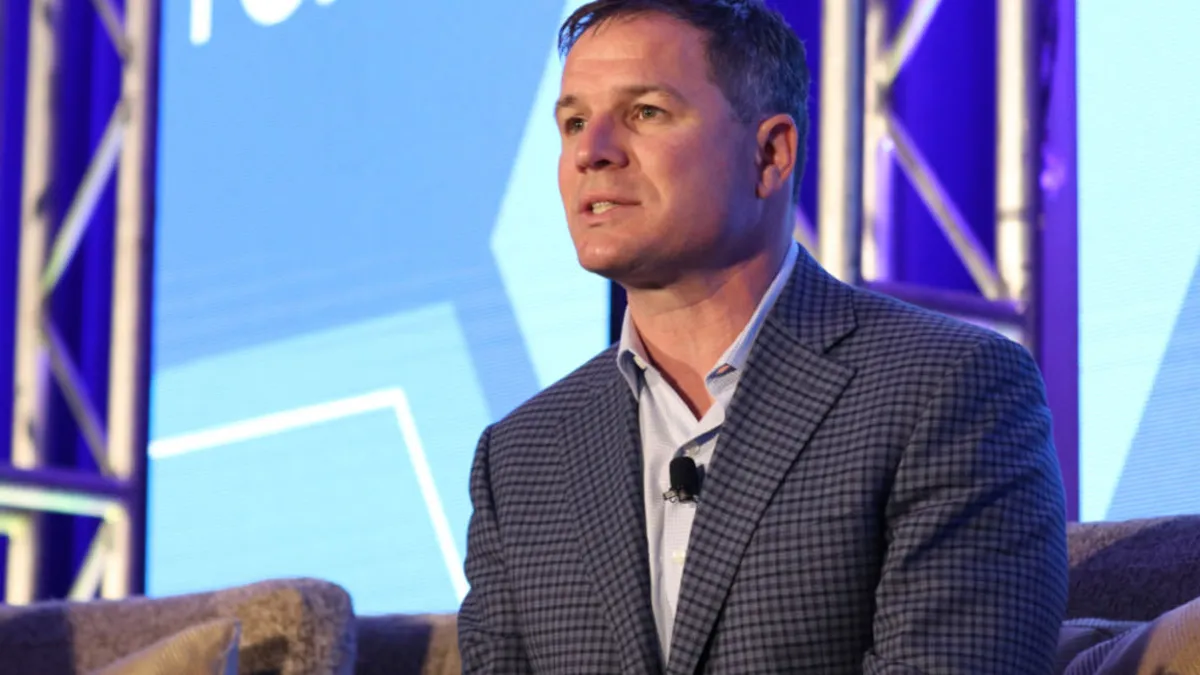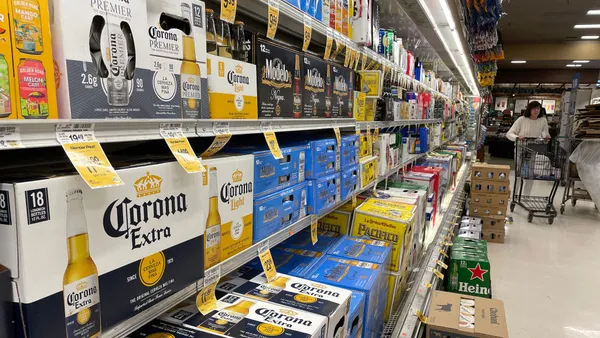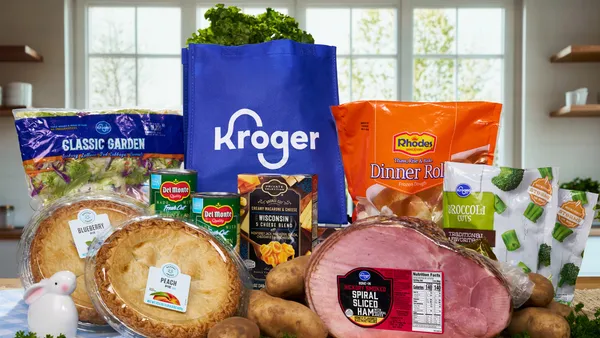Dive Brief:
- The Consumer Brands Association said its president and CEO Geoff Freeman is leaving the trade group after four years to lead the U.S. Travel Association. He starts his new job on Sept. 1.
- Jeff Harmening, board chair at CBA and CEO of General Mills, said in a statement the trade group “will begin the process of working with Geoff on a transition plan and identifying his successor.”
- Freeman’s departure comes at a time when the food and beverage industry is grappling with inflation, supply chain challenges, labor shortages and issues tied to the ongoing pandemic.
Dive Insight:
During Freeman’s tenure at the CBA, he has played a key role in stabilizing an organization that was struggling mightily before his arrival. Since he took over, CBA changed its name from the Grocery Manufacturers Association, focused its priorities and welcomed members to the trade group — including some like Campbell Soup who left a few years earlier after being at odds over the organization's positions.
Instead of focusing on divisive topics such as individual ingredients and nutritional issues, Freeman said in a 2019 interview with sister publication Food Dive that he would instead use the group to take action on the big issues everyone could agree on. The group’s priorities became smart regulation, supply chain issues, building and maintaining consumer trust and sustainability.
The shift in strategy worked. CBA, which represents more than 70 CPG companies covering nearly 2,000 brands from across industry sectors such as food and beverage products, cleaning and personal care, has seen its revenues swell nearly 50% during the past three years, according to Harmening. “Today, our industry is united behind a compelling policy agenda and speaks with a strong, pro-consumer voice,” he said.
Earlier this month, the CBA welcomed several food companies, including meat processor Smithfield Foods, almond producer Blue Diamond Growers, tuna and seafood producer Bumble Bee Foods and J&J Snack Foods. At the time, CBA said two years after rebranding and overhauling its priorities, it has seen a 35% increase in membership.
“Everyone in Washington — and even companies in our own industry — was ready to proclaim our association dead,” Freeman said in March. “But there was a clear need to build an organization that this essential industry deserves.”
The CBA will no doubt be working to quickly fill Freeman’s role after his departure, which comes at a rather inopportune time.
Many of the issues that are top priorities for CBA, such as sustainability and the supply chain, are hot-button issues today for many of its members in a challenging business environment that is perplexing even the most seasoned CEOs. CBA likely has leadership in place to continue crafting its message and working as a liaison with its members. But losing Freeman, given his success at the group, is a tough blow for the organization.














